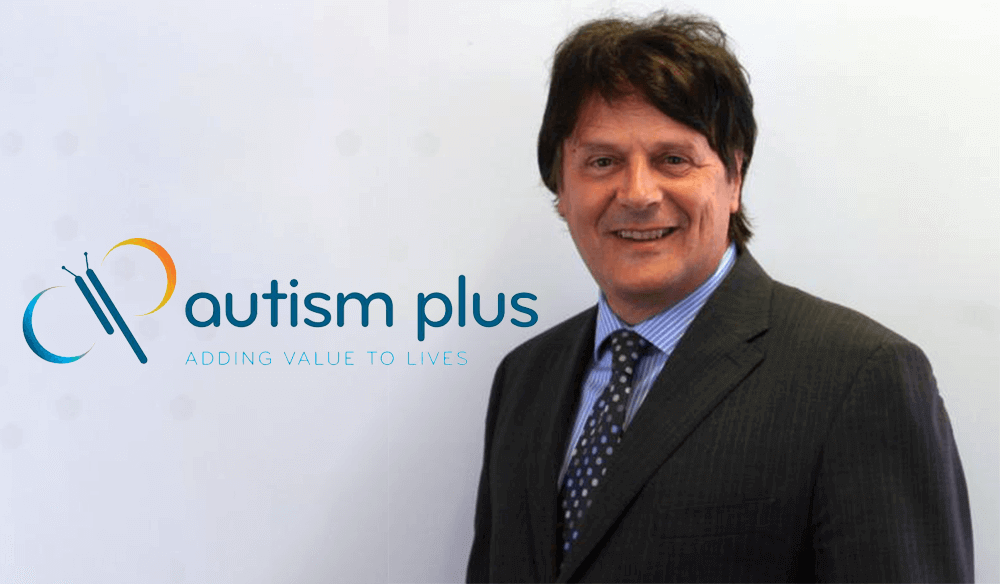Philip Bartey, CEO of Autism Plus, is passionate about his work and tells us more about the firm, its initiatives and the secrets to its success, and his own CEO of the year success.
Autism Plus was founded in 1986 by a small group of parents of Autistic children. The founders were concerned regarding the dearth of available provision to support their children so they created a small local service to meet their needs in South Yorkshire. In the early days, Autism Plus provided limited residential services and later developed day care facilities.
Philip Bartey was appointed CEO in 2005 and increased the size of the organisation from £2m to £10m annually. The service broke out from its limited South Yorkshire base and expanded across Yorkshire and Humber. Today, Autism Plus works from 29 service locations across Yorkshire and Humber employing 450 staff and supporting 300 adults primarily diagnosed with autism.
Philip tells us more about the firm, the work it does and its ongoing strategy to ensure continued success. “Our core business is social care where we provide residential and supported living services on a 24/7 basis each week of the year,” he begins. “Our adult service customers range in age terms from 18 to elderly and each and every one is very different in terms of their condition that we describe as the ‘Autism Spectrum’. At the far end of the spectrum the customers are more able and are often diagnosed with Asperger’s syndrome.
This client group mostly display tremendous aptitude for complex work with numbers, complex detail with remarkable levels of memory recall. Recently a person with Asperger’s syndrome was flown over New York in a helicopter and later drew a detailed accurate drawing from memory recalling precisely the shape, number and layout of every building across the city. Some of the windows in the drawing were darkened with his pencil.
When asked about this he responded that the drawing reflected precisely the number of dirty windows he observed in each building. This is an example of the latent talent each autistic person displays. However autistic people are often excluded from employment because they have communication difficulties.
“At the opposite end of the spectrum we have autistic people with severe and complex conditions and this group requires 24/7 support often within a residential or supported living environment although a good number still live with their parents and families but require outreach or community support.”
“Our strategy includes spreading our service risk more widely in recognition that commissioners vary across the region in terms of their capacity to respond. We are focussing on the five key city regions within Yorkshire and Humber to take advantage of increased devolution of powers and funding from central government to the regions.”
Philip explains that Autism Plus has positioned itself to create unique selling points in order to differentiate from the competition. “We have worked hard to improve the quality of our provision and all our core service areas have achieved a ‘Good’ rating from the Care Quality Commission.
We also receive many compliments from parents, families and commissioners regarding our work. In 2011 I was not satisfied with simply conducting internal audits of our business and hoping the next CQC inspection would go well. The gap between inspections could often be a year or more so my staff would not be used to the inspection process and despite their dedication and experience they would sometimes find the inspectors intimidating.
I therefore commissioned an external auditing and mock inspection company to provide more support for front line staff. External validation of quality and standards adds independent value to management and board audits. We were able to identify and rectify fault lines in advance of the real inspection but importantly the confidence and capability of my team improved enormously. I commissioned further staff training in understanding how and when to challenge inspectors (who sometimes get it wrong). This key move improved the quality of our business and ratings enormously. I do not know of any other provider that has adopted this comprehensive approach.”
At the core of Autism Plus’s strategy it has developed person-centred approaches in recognition that every customer is different. This has proven essential to understand the differences between each individual and it is important to discover what their personal attributes and aspirations are.
“Beyond support within a caring environment most customers want to work, to feel valued and to gain more independence. In 2010 we engaged in the New Deal Programme and successfully placed 1800 autistic people into employment. With a change of government the New Deal was scrapped and the coalition launched the Work Programme.
The work programme was unhelpful for disabled people as the government wanted quick results and engaged with large national companies who were incentivised according to the number of people they placed into work. This led to the ‘parking’ of disabled people and we disengaged from the programme.”
More recently Philip and the company launched a range of social enterprises across the region including a working chocolate factory at Ampleforth in North Yorkshire. The factory produces high-quality handmade chocolates and involves disabled co-workers in the process. The site has only been operational for 18 months but is proving to be a great success already. On the same site Austism Plus has also launched a horticultural service and provides vegetables to the local colleges and communities. He also purchased a musical instrument manufacturing business with an established UK customer base. Within the first year of acquiring the business, it broke into the global export market for the first time.
“We are planning more micro enterprises at Ampleforth including a vintage Morris Minor car hire business and woodland management,” says Philip. “At the heart of our social enterprises the primary aim is to upskill disabled adults, to get them a foot on the employment ladder and to assist them in progressing to open employment. Our secondary aim is to open up new income streams as dependence on state income is diminishing.
“The social enterprises we have created offer a unique selling point for our customers and commissioners. Providing such an exciting range of enterprises is increasingly leading to Autism Plus being the preferred provider because we offer powerful progression routes that have not been replicated by our competitors.”
When Philip first joined Autism Plus in 2005 his main aim was to focus on the staff. At the time motivation was low, there was a bullying and blame culture and the attrition rate was in excess of 30%.
“I spent my first year focussing on changing the culture and this led to the attrition rate falling to 2%,” embellishes Philip. “It has since grown to around 8% but remains well below the industry average. My approach was simplistic. I could not accept inheriting an unhappy workforce. If they are demotivated, dreading to come to work, not feeling valued then this must impact on the vulnerable people we are there to support so for me it was a crucial starting point. Building trust and confidence with staff led to better communication, understanding, engagement of staff and we could embark upon the journey of growth and diversification as a team.
I introduced CEO Cup of Tea meetings held across the service locations four times per annum. The meetings were in accordance with Chatham house rules –open and informal- an opportunity to chat with the CEO, to present ideas, to explain what works well and what does not work so well.
“At the same time I launched ‘Parents Question Time’ events. Engaging with parents and families is crucial to our business and it is important for me to hear first-hand how they feel about our work and the changes to the lives of their offspring.
“Having laid the above foundations or prerequisite approaches to embarking upon our strategic journey I engaged with my senior team, staff and the board to develop the strategy. I have a strong interest in military history because that is where strategy was born. Men and women thrown together in conflict and crisis were forced to develop strategies to keep them alive! Strategy can be quite boring a subject for some people so I introduced military examples and analogies that we could translate into our own approaches.
I wanted my board and team to feel passionate about our business, to understand the challenges and opportunities and to develop that corporate ‘fire in the belly’ motivation.”
As a highly successful CEO Philip clearly has outstanding attributes which have helped him climb the ladder in his career, but humbly, he doesn’t comment on these, and instead tells us how his early career in business prepared him well for the career change in the social care arena.
“Undoubtedly my early career in business helped me in understanding the importance of meeting customer needs, getting the product or service right, motivating the team, why inspirational leadership matters and in constantly seeking continuous improvement. I seek out ways of identifying and creating the USP or advantage over the competition that makes a real difference to service users and I have never lost that ‘fire’ in my belly that drives me onwards and upwards.”
With regards to the future, Autism Plus aspires to be the service of choice for autistic and disabled people and wants to roll out this unique service nationally. “We strive for continuous improvement – there is no ceiling when it comes to meeting customer needs and driving up quality of service and products,” Philip says.
Autism Plus has ambition to extend its work nationwide and is finalising its strategy to achieve this in recognition that the autistic population is growing and demand for services and support is increasing substantially. With the state withdrawing support, providers need to adapt the way they work without compromising quality.
“I think it will take us five years to achieve the national step change but Autism Plus is up for the challenge as ever.
“Where will I be in five years’ time? Still alive and kicking I hope and still seeking excellence through change and growth. These are challenging but exciting times. I want the best possible outcomes that can be achieved for disabled and vulnerable people.”
Name: Philip Bartey MinstD, Group Chief Executive
Company: Autism Plus
Address: The Exchange Brewery, 2 Bridge Street, Sheffield, S3 8NS
Email: [email protected]
Telephone: 0114 384 0284
Web: www.autismplus.org









